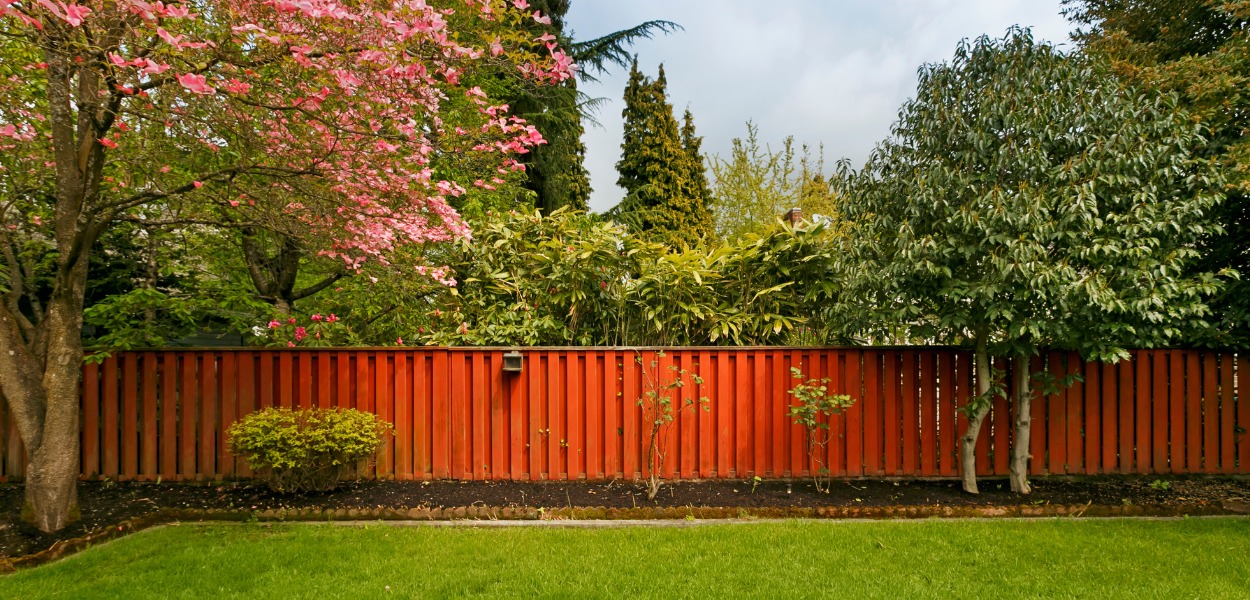All Categories
Featured

Amongst the most preferred alternatives, timber, vinyl, and aluminum each deal one-of-a-kind advantages and drawbacks. Right here's a malfunction of the pros and disadvantages of these three typical fence materials.
Timber Fencing. Wood secure fencing has been a classic choice for homeowners due to its natural elegance and versatility.
Pros:. Visual Charm: Timber provides a traditional and warm look that complements a range of architectural designs. Personalized: It can be painted, stained, or reduce into unique designs to fit individual choices. Affordable: Initially, timber fencing can be an inexpensive choice compared to other materials. Eco-Friendly: Timber is a renewable energy and can be sustainably sourced. Cons:. High Maintenance: Timber calls for regular sealing, staining, or painting to stop rot, insect damage, and weathering. Sturdiness Problems: Without correct treatment, wood can warp, crack, or degeneration gradually, specifically in locations with high moisture. Shorter Lifespan: A wood fence commonly lasts 10-20 years, depending upon the sort of timber and degree of maintenance. Wood is perfect for those that value a traditional look and are prepared to dedicate to its upkeep.
Vinyl Fence. Vinyl is a contemporary, low-maintenance fence option that has actually grown in appeal in recent times.

Pros:. Reduced Maintenance: Vinyl does not call for paint, staining, or securing and can be quickly cleansed with soap and water. Weather condition Resistant: It stands up to harsh climate condition without rotting, rusting, or bending. Resilient: Vinyl fencings can last 20-30 years with minimal upkeep. Variety of Styles: Offered in several colors, styles, and appearances, some plastic options mimic the look of timber. Disadvantages:. Greater Upfront Cost: Plastic fence can be more expensive at first contrasted to timber. Brittleness in Winter: In extreme chilly, vinyl may split or become fragile. Limited Repairs: Specific panels can be challenging to change, needing mindful matching to the existing fence. Vinyl is finest suited for home owners seeking a durable, low-maintenance service with modern-day appearances.
Aluminum Secure Fencing. Light weight aluminum secure fencing is a sturdy and lightweight choice, typically selected for its contemporary appearance and convenience.
Pros:. Rust-Resistant: Aluminum does not corrosion, making it a superb option for wet or damp environments. Low Maintenance: Needs minimal maintenance and is very easy to tidy. Durable: While light-weight, aluminum is solid enough to withstand lots of ecological conditions. Lengthy Life-span: Can last a number of decades without considerable wear or wear and tear. Range of Styles: Offers a classy and sleek look, typically used for attractive or ornamental functions. Disadvantages:. Higher Price: The first investment for aluminum fence is more than timber or plastic. Much Less Personal privacy: Aluminum fences are often designed with open pickets, making them less effective for privacy. Vulnerable to Dents: Although sturdy, light weight aluminum can be nicked by solid impacts. Light weight aluminum is excellent for those looking for a fashionable, resilient alternative that requires minimal treatment.
Making the Right Choice. Each fence material-- aluminum, vinyl, and timber-- offers distinctive benefits and drawbacks. Your decision ought to rely on your specific top priorities, such as budget plan, maintenance choices, climate, and aesthetic goals:
Choose timber if you like a typical appearance and do not mind routine maintenance. Go with plastic if you desire a low-maintenance, weather-resistant fencing with modern-day appeal. Go with aluminum if you prioritize durability, rust resistance, and a smooth layout. By weighing these cons and pros, you can choose a secure fencing material that enhances your property while fulfilling your practical needs.
Latest Posts
Check Out the Best Auto Repair Discounts in Montclare, Chicago
Published May 27, 25
1 min read
Why Chicago Drivers Select Montclare Auto Repair for Reliable Service and Significant Savings
Published May 26, 25
1 min read
Find Out How WyHy Federal Credit Union Saves You Money on Loans and Savings
Published May 25, 25
1 min read
More
Latest Posts
Check Out the Best Auto Repair Discounts in Montclare, Chicago
Published May 27, 25
1 min read
Why Chicago Drivers Select Montclare Auto Repair for Reliable Service and Significant Savings
Published May 26, 25
1 min read
Find Out How WyHy Federal Credit Union Saves You Money on Loans and Savings
Published May 25, 25
1 min read